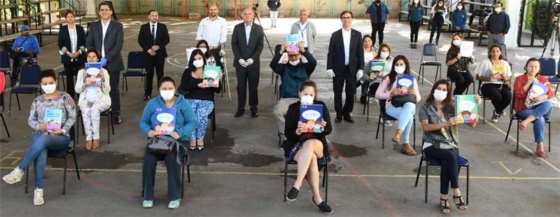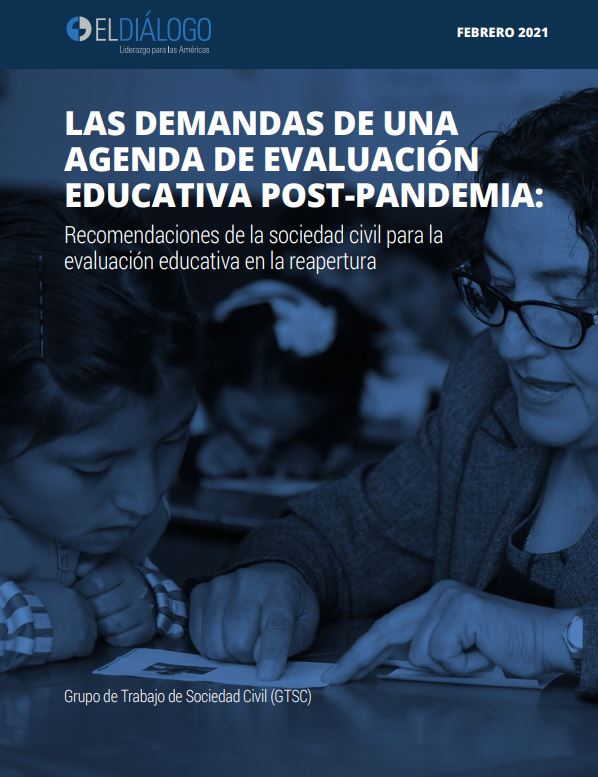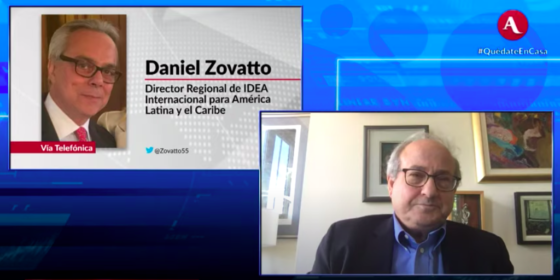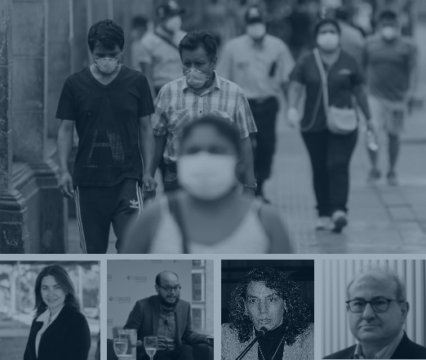
Will Latin America’s Schools Be Able to Reopen Safely?
Do schools in Latin America and the Caribbean have enough government funding and resources to both educate students and protect their health amid Covid-19?
This post is also available in: Español
The following report is only available in Spanish.
The Covid-19 pandemic has resulted in a major crisis for Latin America’s education systems. School closures forced education authorities to rapidly expand plans for distance education. For this reason, educational evaluation has become more relevant, including in post-pandemic contexts, where it will be imperative to implement decisive education strategies oriented at repairing learning losses, as well as addressing growing gaps between students from distinct socio-demographic groups.
The Civil Society Working Group (GTSC in Spanish), made up of nineteen civil society organizations from eleven countries within Latin American and the Caribbean, held meetings between October and December of 2020 to identify the most effective strategies for evaluating learning losses and monitoring the needs of students in vulnerable situations during the pandemic and reopening of schools.
Based on their experiences in the context of the pandemic and the evidence gathered, the members of the GTSC proposed five recommendations for the development and implementation of effective educational evaluation strategies for reopening. The recommendations are oriented towards national governments, as well as regional and local authorities, that are in the process of developing evaluation policies and methodologies.
During reopening, investing in continuous evaluation and monitoring processes that are focused on vulnerable groups is imperative. It is recommended that as soon as schools start to reopen, education authorities focus their evaluation efforts on measuring the learning gaps that may have been exacerbated during the pandemic. It is necessary to orient these efforts towards the groups of students who are more susceptible to academic delays and school desertion, such as children, youth, and adolescents in rural zones or with disabilities.
It is important to include civil society in processes regarding the planning and management of educational evaluation strategies during reopening. During the pandemic, civil society organizations have worked at the vanguard of comprehensive distance evaluation, not only for academics, but also socioemotional development and family and teacher support. Because of this, it is imperative that governments in the region collaborate more closely with these organizations to develop and deploy effective monitoring and evaluation strategies during reopening.
Education authorities at the national, regional, and local level should support local networks to distribute and implement collaborative and multichannel instruments. During reopening, it will be key to leverage networks of government and non-government actors that formed during the pandemic, such as non-digital distribution channels, to release data about students without internet connection or who have been left out of the education system.
Redefine the dimensions of educational evaluation. Education authorities in the region must integrate socioeducational components, beyond academic achievement, as central themes for educational evaluation strategies in the long-term. After addressing learning gaps during reopening, it is important to pay attention to the socioemotional needs of students, the parental and teacher support they receive, and their level of access to academic materials.
It is necessary to expand access to evaluation platforms and promote the open and collaborative use of relevant data. After enriching and improving the processes of systematizing and analyzing data within the framework of educational evaluation, we ask for education authorities to expand non-government actors’ level of access to evaluation databases and data platforms. Education authorities should also identify pathways for collaboration with members of civil society and/or other actors who have the capacity to support evaluation strategies on a larger scale.
The Education Program thanks the Tinker Foundation for their generous support in the making of this report.
Do schools in Latin America and the Caribbean have enough government funding and resources to both educate students and protect their health amid Covid-19?
En esta entrevista con Aristegui Noticias, Michael Shifter habló con Daniel Zovatto, Director Regional de IDEA Internacional para América Latina y el Caribe, sobre el impacto de la pandemia en los Estados Unidos, América Latina en general y también casos específicos como Brasil, México, El Salvador, Nicaragua y Venezuela.
On June 30, 2020, the Inter-American Dialogue hosted “Peru’s Covid-19 Outbreak,” a webinar featuring Alberto Vergara, Lucía Dammert, and Carolina Trivelli. The discussion focused on the political and institutional dimensions of the Covid-19 pandemic in Peru as the country faces some of the worst infection rates in the world.

 Video
Video
 Video
Video